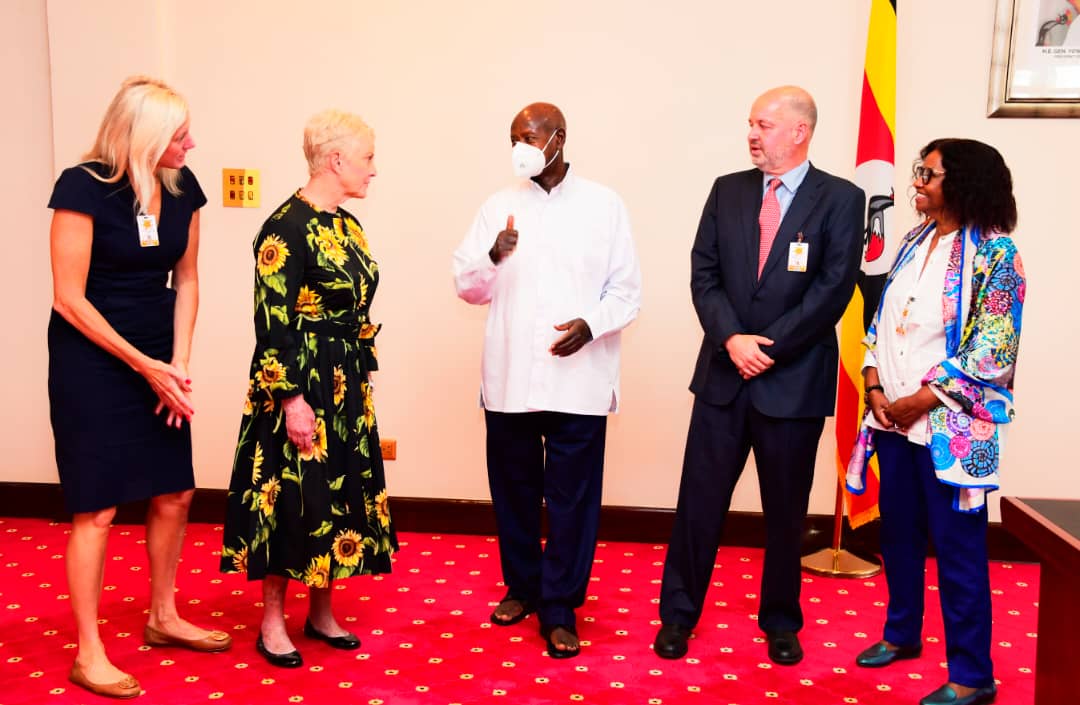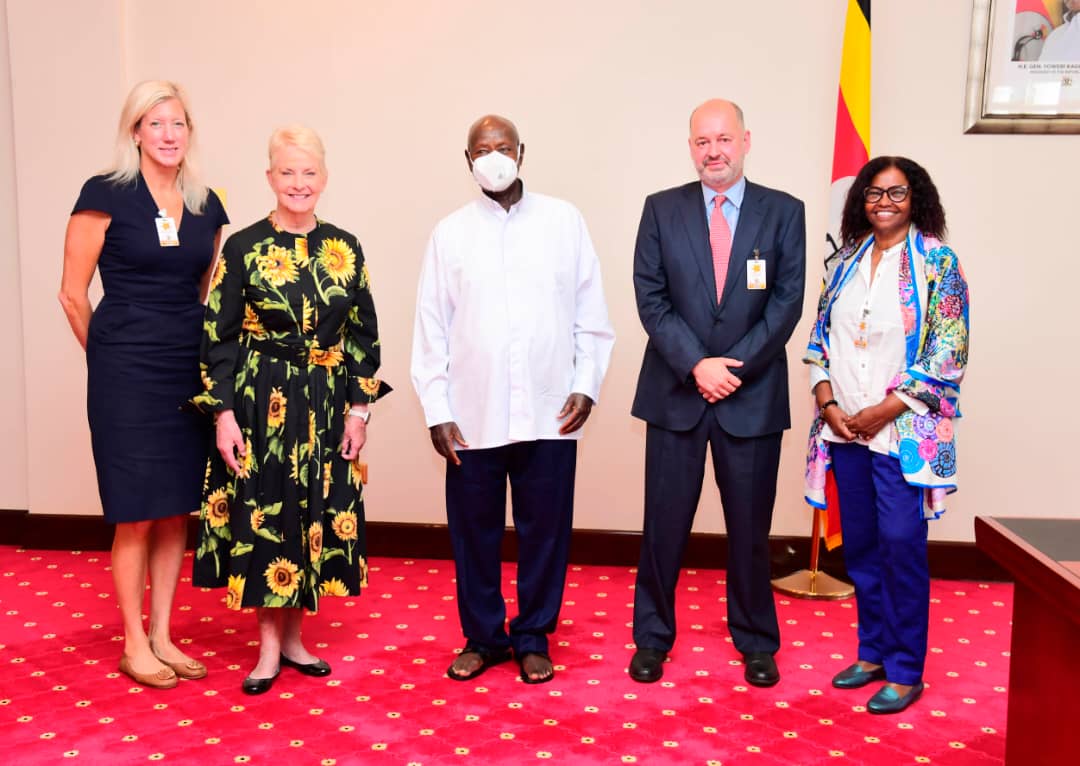President Yoweri Kaguta Museveni has today called for a shift from traditional humanitarian aid to sustainable, agriculture-based solutions to support refugees in Uganda.
During a meeting held at State House, Entebbe, President Museveni engaged with officials from the World Food Programme (WFP) to discuss strategies aimed at enhancing refugee livelihoods and promoting self-reliance through efficient land use and organized agricultural activities.
“Uganda has always welcomed our displaced brothers and sisters, but we must now move beyond emergency response. The challenge is that most refugee settlements are spread out inefficiently, with vast land occupied by scattered makeshift shelters. This hinders large-scale farming and economic activity,” ” the President said.
This comes as Uganda continues to rank among the top refugee-hosting countries globally, with over 1.8 million refugees and asylum seekers, primarily from South Sudan, the Democratic Republic of Congo and Burundi.
The President thus proposed a reorganization of refugee settlements into more compact, planned communities, which would free up land for collective farming. “If we adopted a more structured approach similar to building small campuses or villages, we could maximize land use, promote food production and even generate surplus for sale,” President Museveni added.
Citing Nakivale Refugee Settlement in southwestern Uganda, which spans 71 square miles, the President said that with proper planning and investment, such land could be transformed into productive farmland that supports both refugees and host communities. “The land is there. What we need is better planning and infrastructure. This way, refugees can grow their own food, become economically active, and reduce their reliance on aid,” he said.

The President also noted that Uganda’s hospitality towards refugees stems from a Pan-African philosophy that sees displaced persons as part of the broader regional community. “These people are not foreigners in the real sense. Many of them share ethnic and cultural ties with Ugandans. Our borders are artificial drawn by colonialists. So, when they come here, we treat them as our own,” President Museveni said.
Officials from the WFP welcomed the President’s proposals and reaffirmed their commitment to working with the government to implement sustainable, development-oriented refugee support programs.
On her part, the Executive Director of the United Nations World Food Programme, Ms. Cindy McCain, highlighted Uganda’s vast agricultural potential, noting that the WFP was optimistic about Uganda’s proposals to boost food production and empower refugee-hosting communities. “The land here is very large and fertile. As WFP, we are confident in your proposal to create agricultural opportunities in these areas,” she added.
“The message we are taking back to both large and small donors is that Uganda is working to make these communities more self-reliant and self-sustaining.” Ms. McCain also praised Uganda for its progressive approach to refugee hosting and its untapped agricultural potential, emphasizing the country’s leadership in promoting self-reliance and sustainability among displaced populations.
Mr. Marcus Prior, the Country Director of WFP in Uganda also praised his team for their efficiency and innovation in the face of limited resources. “We have worked on innovative solutions to make our operations more efficient and ensure that we continue to use our resources wisely. The team here in Uganda is doing exceptionally well,” he added. Mr. Prior further commended the strong collaboration between WFP and the Ugandan government, particularly the Office of the Prime Minister.
The meeting was also attended by Ms. Rukia Yacoub, Deputy Regional Director, Ms. Meghan Latcovich, Chief of Staff, WFP, Mr. Alessandro Ceretti and Mr. Julian Civiero from the Office of the Executive Director, WFP.




